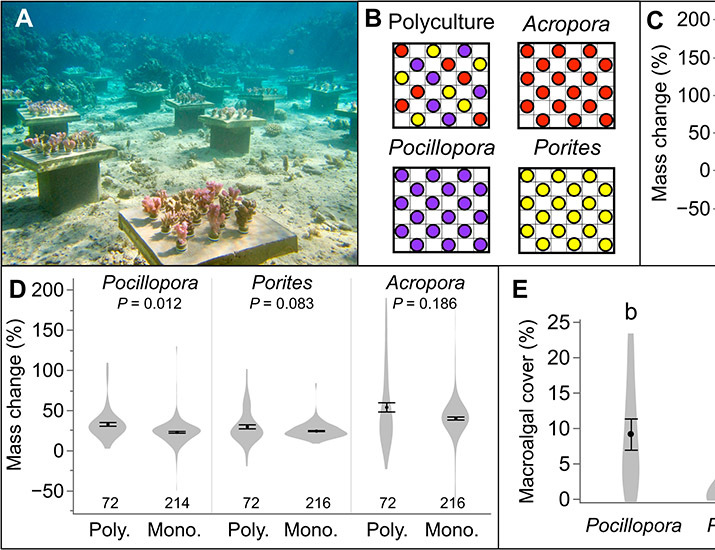- Record: found
- Abstract: found
- Article: found
Biodiversity has a positive but saturating effect on imperiled coral reefs

Read this article at
Abstract
Abstract
Coral diversity positively affects corals, but these benefits have limits and are threatened by ongoing species loss.
Abstract
Species loss threatens ecosystems worldwide, but the ecological processes and thresholds that underpin positive biodiversity effects among critically important foundation species, such as corals on tropical reefs, remain inadequately understood. In field experiments, we manipulated coral species richness and intraspecific density to test whether, and how, biodiversity affects coral productivity and survival. Corals performed better in mixed species assemblages. Improved performance was unexplained by competition theory alone, suggesting that positive effects exceeded agonistic interactions during our experiments. Peak coral performance occurred at intermediate species richness and declined thereafter. Positive effects of coral diversity suggest that species’ losses on degraded reefs make recovery more difficult and further decline more likely. Harnessing these positive interactions may improve ecosystem conservation and restoration in a changing ocean.
Related collections
Most cited references35
- Record: found
- Abstract: found
- Article: not found
Biodiversity loss and its impact on humanity.
- Record: found
- Abstract: not found
- Article: not found
Mechanisms of Maintenance of Species Diversity
- Record: found
- Abstract: not found
- Article: not found
